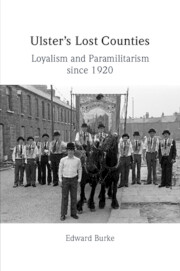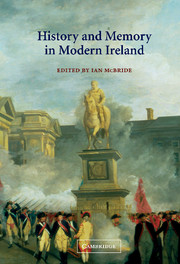Ulster's Lost Counties
In 1920, the three Ulster counties of Cavan, Donegal and Monaghan were excluded from Northern Ireland. What happens to an abandoned people? And what is the impact on subsequent generations? At a time of uncertainty over the future of Northern Ireland, the history of Ulster loyalists who found themselves on the 'wrong side' of the Irish border is especially relevant. Memories of the violence and betrayal experienced by one generation of protestants in the three counties entrenched an intergenerational Ulster loyalist identity. Subsequently, three-county loyalists who moved across the border played an important role in militant politics. Examining armed resistance in these counties and the radicals who came from them, Edward Burke argues that violence or terrorism perpetrated by 'lost Ulster' loyalists enjoyed considerable success. Spanning the Anglo-Irish War to the Troubles and beyond, Ulster's Lost Counties demonstrates the grip of identity and betrayal since the partition of Ireland.
- Examines the importance of intergenerational memory in forming and maintaining a loyalist Ulster identity within the three 'lost counties'
- Highlights the political logic and occasional success of Ulster loyalist paramilitary violence in the south of Ireland after partition
- Places the experiences of the Ulster loyalist minority in the Irish state within broader theories of ethnic identity, paramilitarism, and political violence
Product details
May 2025Paperback
9781009469296
356 pages
229 × 152 mm
Not yet published - available from May 2025
Table of Contents
- 1. Introduction
- 2. Revolver in Hand, Lining the Ditches – Holding Fast and Fighting Back in Loyalist Monaghan
- 3. Closing the Gates – Loyalist Paramilitaries and Resistance in Donegal
- 4. A Toothless Hound of Ulster? Paramilitarism in Cavan
- 5. The Last Ditch – Three-County Loyalist Militancy in Northern Ireland
- 6. Chapter 6: A Suspect Population – Intergenerational Memory and Vengeance
- 7. Conclusion
- Bibliography.




